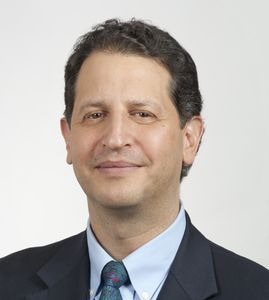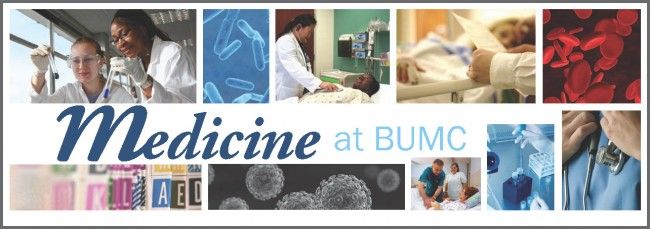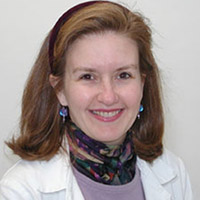Dr. Lindsay Farrer featured on NBC 10 Boston

"DNA Kits Yield Different Results From Two Genetics Companies"
Dr. Lindsay Farrer, Chief of Biomedical Genetics section, helps clarify the accuracy of DNA ancestry kits like 23 and Me and Ancestry.com.
Users of these genetic testing services have questioned their accuracy after receiving different test results from different companies.
Dr. Farrer notes that differing reference samples and unique algorithms used by each company may be the cause of differing results. Read More.
“Good News: Opioid Prescribing Fell. The Bad? Pain Patients Suffer, Doctors Say”, featuring Dr. Daniel Alford in New York Times
 "Good News: Opioid Prescribing Fell. The Bad? Pain Patients Suffer, Doctors Say", featuring Dr. Daniel Alford in New York Times
"Good News: Opioid Prescribing Fell. The Bad? Pain Patients Suffer, Doctors Say", featuring Dr. Daniel Alford in New York Times
Dr. Daniel Alford of the Section of General Internal Medicine and director of the Clinical Addiction Research and Education (CARE) Unit helps to advocate for smarter guidelines for opioid prescriptions for pain management. Read More.
Center for Transgender Medicine and Surgery’s Jenny Siegel and Carl Streed published in AAMC News
Keeping our promise to LGBTQ+ patients
Drs. Jenny Siegel and Carl Streed of BMC's Center for Transgender Medicine and Surgery discuss the challenges members of the LGBTQ+ community often face when interacting with healthcare providers and the pressing need to train future physicians to provide compassionate, informed, and appropriate care to LGBTQ+ patients. Read More.
NEJM Editorial by Dr. George O’Connor featured in New York Times
Featured in the New York Times article "E-Cigarettes Are Effective at Helping Smokers Quit, a Study Says", the New England Journal of Medicine editorial by BU pulmonologist Dr. George O'Connor and Dr. Belinda Borrelli, a behavioral health expert, "noted that 80 percent of the study participants who had quit by using e-cigarettes were still vaping at one year, while only nine percent of the nicotine replacement therapy group was still using nicotine products."
Countering the claim by other studies mentioned in the article, the editorial suggests that while cigarette use has discontinued in both groups, nicotine exposure continued at one year for 8 times as many participants using e-cigarettes opposed to nicotine replacement therapy. This "raised concerns, they wrote, about sustained nicotine addiction and the unknown health consequences of long-term e-cigarette use."
Dr. Emelia Benjamin featured on HealthDay
 Dr. Emelia Benjamin, Vice Chair for Faculty Development and Diversity for the Department of Medicine, recently led the committee that published a report titled Heart Disease and Stroke Statistics - 2019 Update, the findings from which were highlighted in a Jan 31st article on HealthDay.com.
Dr. Emelia Benjamin, Vice Chair for Faculty Development and Diversity for the Department of Medicine, recently led the committee that published a report titled Heart Disease and Stroke Statistics - 2019 Update, the findings from which were highlighted in a Jan 31st article on HealthDay.com.
While the report found that nearly half of American adults have high blood pressure, heart disease or a history of stroke, there are steps you can take to delay or prevent these conditions. "Stop smoking, eat healthier, exercise, get your cholesterol and blood sugar under control," Benjamin said.
Winter 2019 Newsletter
Winter 2019 Newsletter

Dr. Angela Jackson Receives 2018 Jerome Klein Award

Angela Jackson, MD, associate dean of student affairs, has been named the 2018 recipient of the Jerome Klein Award for Physician Excellence. Dr. Jackson, an associate professor of medicine, also serves as a general internal medicine physician at Boston Medical Center (BMC).
Dr. Jackson is recognized for the Jerome Klein award for her unwavering commitment to our patients and mission, her leadership in the medical community locally to nationally and her profound impact on education and mentorship throughout her 30 years on the medical campus. Read More.
DOM Faculty Named 2019 Top Docs
 Congratulations to the 57 Department of Medicine faculty members who were named to Boston Magazine's annual Top Doc's list!
Congratulations to the 57 Department of Medicine faculty members who were named to Boston Magazine's annual Top Doc's list!
Allergy & Immunology
Helen M. Hollingsworth
Cardiac Electrophysiology
Robert H. Helm
Kevin M. Monahan
Cardiovascular Disease
Eric H. Awtry
Gary J. Balady
Sheilah A. Bernard
Robert T. Eberhardt
Alice K. Jacobs
Clinical Genetics
Jodi D. Hoffman
Endocrinology, Diabetes & Metabolism
Sonia Ananthakrishnan
Alan P. Farwell
Michael F. Holick
Stephanie L. Lee
Elizabeth N. Pearce
stroenterology
Charles M. Bliss Jr
Francis A. Farraye
David R. Lichtenstein
Robert C. Lowe
David P. Nunes
Paul C. Schroy III
Geriatric Medicine
Heidi P. Auerbach
Lisa B. Caruso
Hollis D. Day
Eric J. Hardt
Sharon A. Levine
Hematology
Vaishali H. Sanchorawala
Internal Medicine
Thomas W. Barber
Melissa D. DiPetrillo
Warren Y. Hershman
Angela H. Jackson
Susan L. Phillips
Jeffrey H. Samet
Charles P. Tifft
Interventional Cardiology
Claudia P. Hochberg
Anthony D. Litvak
Ashvin N. Pande
Medical Oncology
Timothy P. Cooley
Gretchen Gignac
Kevan L. Hartshorn
Matthew H. Kulke
Adam Lerner
Nephrology
Laurence H. Beck Jr
Jasvinder S. Bhatia
David J. Salant
Pulmonary Disease
John L. Berk
Jeffrey S. Berman
John Bernardo
Elizabeth S. Klings
Frederic F. Little
George T. O'Connor Jr
Arthur C. Theodore
Reproductive Endocrinology
Wendy Kuohung
Robert M. Weiss
Rheumatology
David T. Felson
Eugene Y. Kissin
Robert W. Simms
Dr. Tuhina Neogi is new Chief of Rheumatology
 We are delighted to announce that Tuhina Neogi, M.D., Ph.D., Professor, Department of Medicine, has accepted our offer to become Chief of the Rheumatology Section effective January 1, 2019. Dr. Neogi received her M.D. from the University of Toronto and Ph.D. from the Boston University School of Public Health. She leads an internationally known research team focused on knee osteoarthritis and gout, pain mechanisms in osteoarthritis, and methodologic issues in rheumatic diseases. She has served on a number of national and international committees and organizations, including guideline writing and FDA committees. Her work has been continuously supported by both NIH and national foundations. She is a past recipient of the prestigious Henry Kunkel Young Investigator Award from the American College of Rheumatology and the Robert Dawson Evans Research Mentoring Award from the Department of Medicine. She is also leading the CTSI’s Research Career Support Program. Dr. Neogi is an exceptional investigator, clinician, mentor, and role model. We are thrilled that she has so enthusiastically embraced this critically important leadership opportunity for our department and look forward to working with her.
We are delighted to announce that Tuhina Neogi, M.D., Ph.D., Professor, Department of Medicine, has accepted our offer to become Chief of the Rheumatology Section effective January 1, 2019. Dr. Neogi received her M.D. from the University of Toronto and Ph.D. from the Boston University School of Public Health. She leads an internationally known research team focused on knee osteoarthritis and gout, pain mechanisms in osteoarthritis, and methodologic issues in rheumatic diseases. She has served on a number of national and international committees and organizations, including guideline writing and FDA committees. Her work has been continuously supported by both NIH and national foundations. She is a past recipient of the prestigious Henry Kunkel Young Investigator Award from the American College of Rheumatology and the Robert Dawson Evans Research Mentoring Award from the Department of Medicine. She is also leading the CTSI’s Research Career Support Program. Dr. Neogi is an exceptional investigator, clinician, mentor, and role model. We are thrilled that she has so enthusiastically embraced this critically important leadership opportunity for our department and look forward to working with her.
As part of our strategy to further enhance the clinical and academic programs in Rheumatology, the Sections of Rheumatology and Clinical Epidemiology will be administratively and programmatically re-unified starting January 1, 2019. I would like to express my gratitude to Drs. Robert Simms (Chief, Rheumatology Section) and David Felson (Chief, Clinical Epidemiology Section) for their thoughtful and generous support of the consolidation of the two sections. Their selfless approach to building rheumatology through the consolidation under Dr. Neogi’s leadership has been both remarkable and admirable. Dr. Simms will be appointed an Evans Scholar and will be further building the Scleroderma Program. Dr. Felson will be assuming a more prominent leadership position within the Clinical and Translational Science Institute and continue to expand his very prominent research program. We are very grateful to Drs. Simms and Felson for their many years of service to the department and look forward to working with them in their new roles.
Reducing Readmissions for Patients with Heart Failure and COPD
While BMC’s all cause 30-day readmission rate was 10.96% in FY17, certain populations had much higher readmission rates particularly heart failure (HF) (23.73% FY17) and COPD (24.81% FY17).
With almost 1 in 5 HF and COPD patients readmitted, reducing readmissions for these patients has become an important hospital and quality priority.
Multidisciplinary pilots focusing on transitions of care started on 7/5/18 on E7N for patients with HF, with full go-live anticipated by February 2019. Menino 6 is piloting similar strategies for patients with COPD. Both pilots include:
- Adoption of “Teach Back” methodology for all patient teaching
- Partnering with home care providers such as our VNAs for home med reconciliation
Unique to HF:
- HF consult triggers for patients on non-cardiology teams
- Standardization of patient instructions in AVS using smart phases for HF
- Facilitated early discharge transitions of care (TCM) appointments
- Personalized reminder calls by Cardiology Clinic staff one day before post discharge appointments for patients with HF
Unique to COPD:
- Inpatient COPD NP consult with follow up outpatient appointment. Welcome Alexis Gallardo Foreman, NP to the COPD care team! Alexis is available to see patients with COPD in both the inpatient and ambulatory settings.
During the 8-week HF pilot on E7N, the 30d readmission rate decreased from 21.6% to 12.9%., with most reduction seen in the 7-10d readmission rate. In Jan-Nov 2018, COPD readmission rate was 20.7%.
You are the critical link to connecting our patients with HF and COPD to these proven strategies for reducing readmission and improving health. Please consult the HF or the COPD service to activate patient care resources!